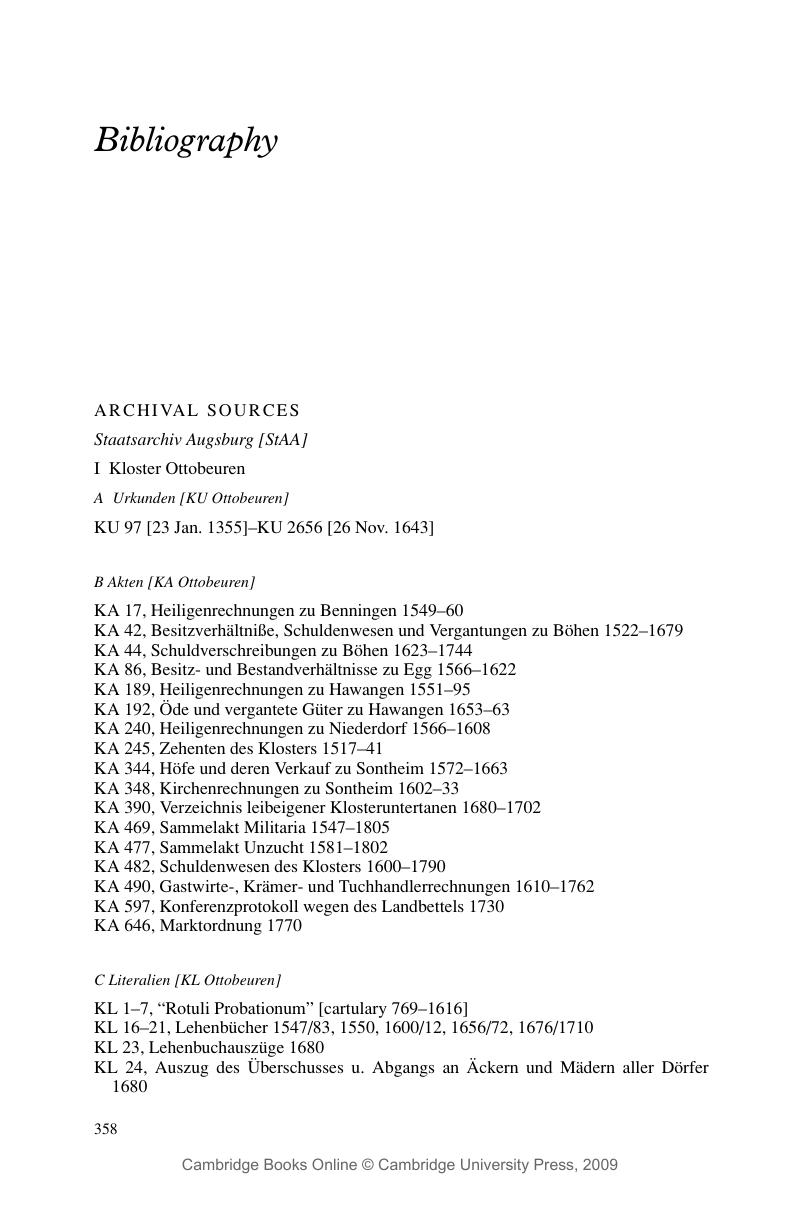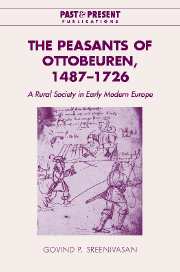Book contents
- Frontmatter
- Contents
- List of figures
- List of maps
- List of tables
- Acknowledgements
- Note on weights, measures, and currencies
- Map 1 Southern Germany, c. 1620
- Map 2 The lands of the monastery of Ottobeuren, 1620
- Introduction
- 1 Right and might (c. 1480–c. 1560)
- 2 The discrete society (c. 1480–c. 1560)
- 3 A crisis of numbers? (c. 1560–c. 1630)
- 4 Integrity and the market (c. 1560–c. 1630)
- 5 Living on borrowed time (c. 1560–c. 1630)
- 6 To empty and to refill (c. 1630–c. 1720)
- Conclusion
- Bibliography
- Index of places
- General index
- Past and Present Publications
- References
Bibliography
Published online by Cambridge University Press: 21 July 2009
- Frontmatter
- Contents
- List of figures
- List of maps
- List of tables
- Acknowledgements
- Note on weights, measures, and currencies
- Map 1 Southern Germany, c. 1620
- Map 2 The lands of the monastery of Ottobeuren, 1620
- Introduction
- 1 Right and might (c. 1480–c. 1560)
- 2 The discrete society (c. 1480–c. 1560)
- 3 A crisis of numbers? (c. 1560–c. 1630)
- 4 Integrity and the market (c. 1560–c. 1630)
- 5 Living on borrowed time (c. 1560–c. 1630)
- 6 To empty and to refill (c. 1630–c. 1720)
- Conclusion
- Bibliography
- Index of places
- General index
- Past and Present Publications
- References
Summary

- Type
- Chapter
- Information
- The Peasants of Ottobeuren, 1487–1726A Rural Society in Early Modern Europe, pp. 358 - 372Publisher: Cambridge University PressPrint publication year: 2004



